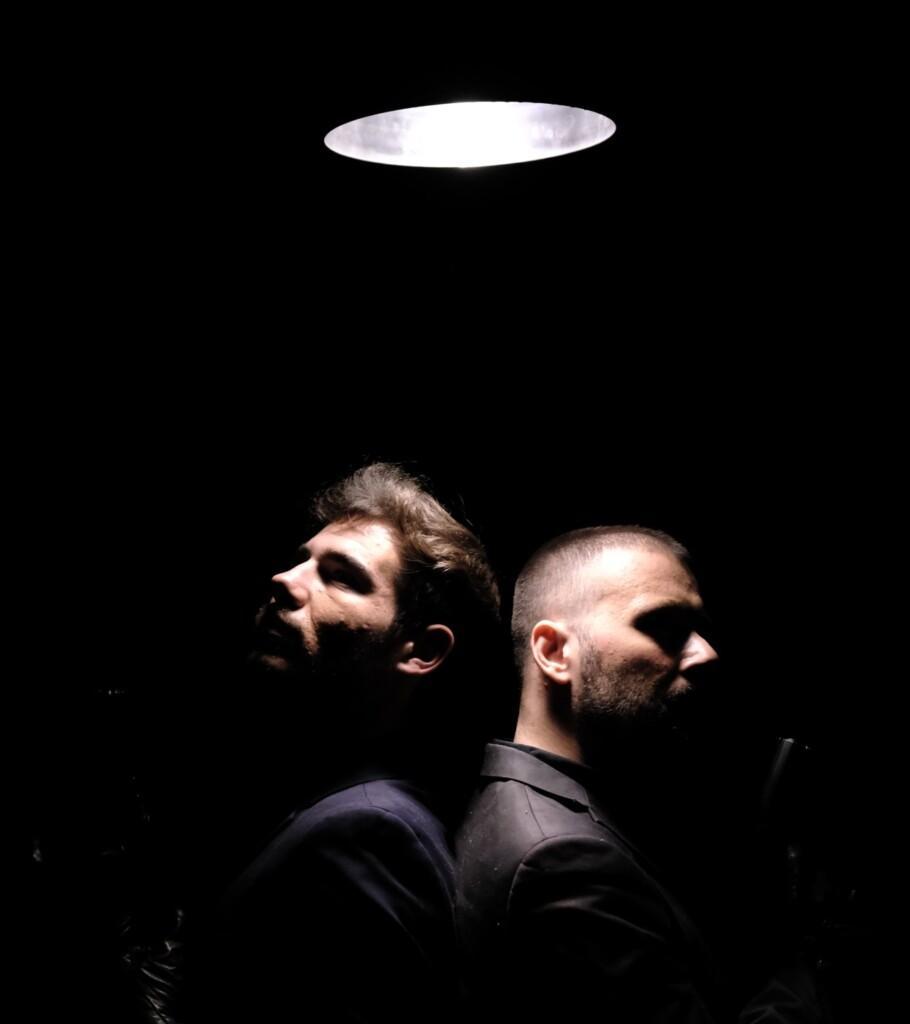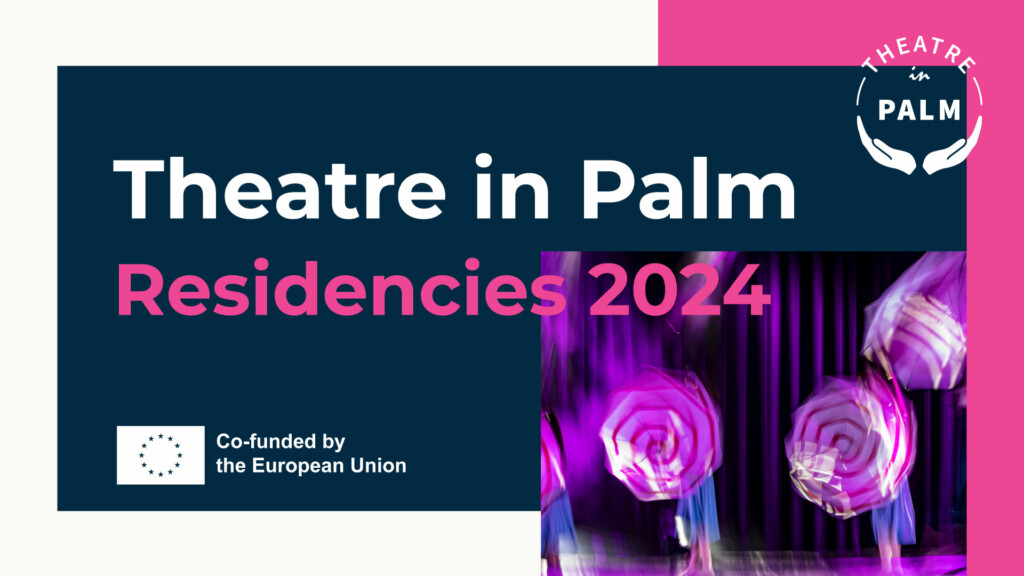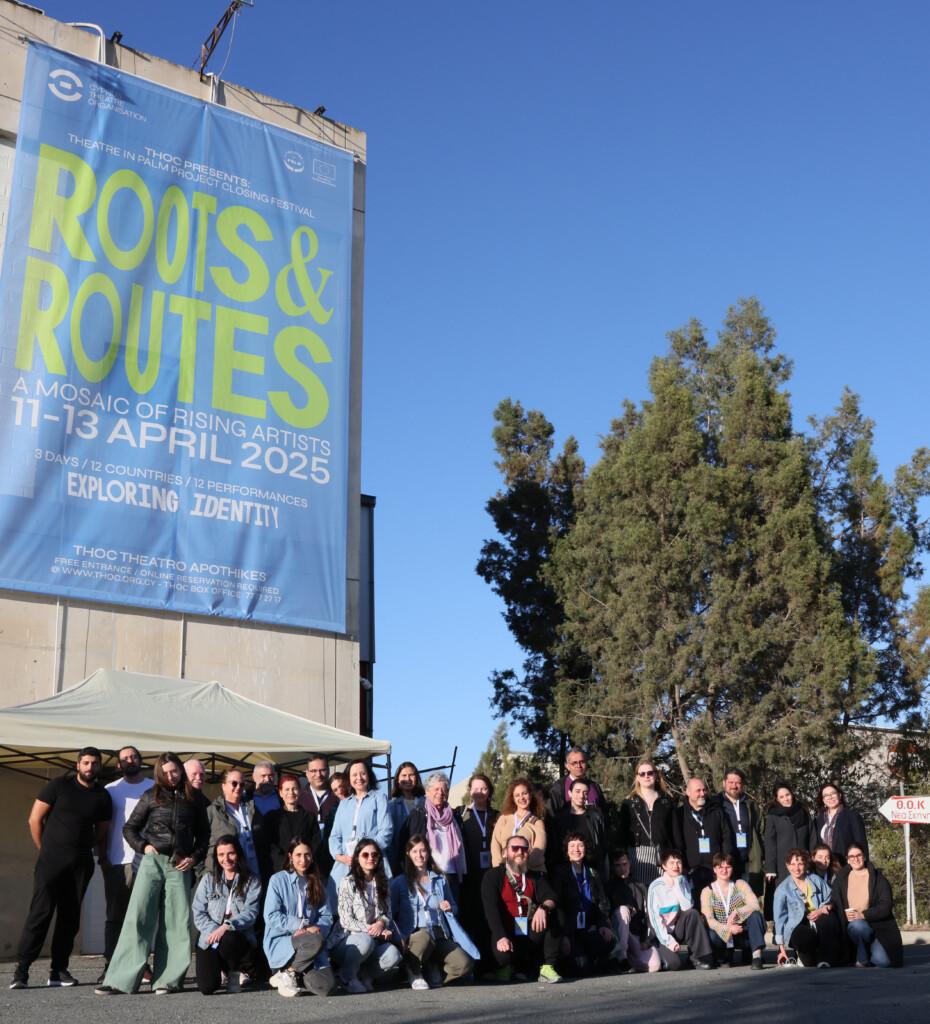The new medium nobody really worked with like that before
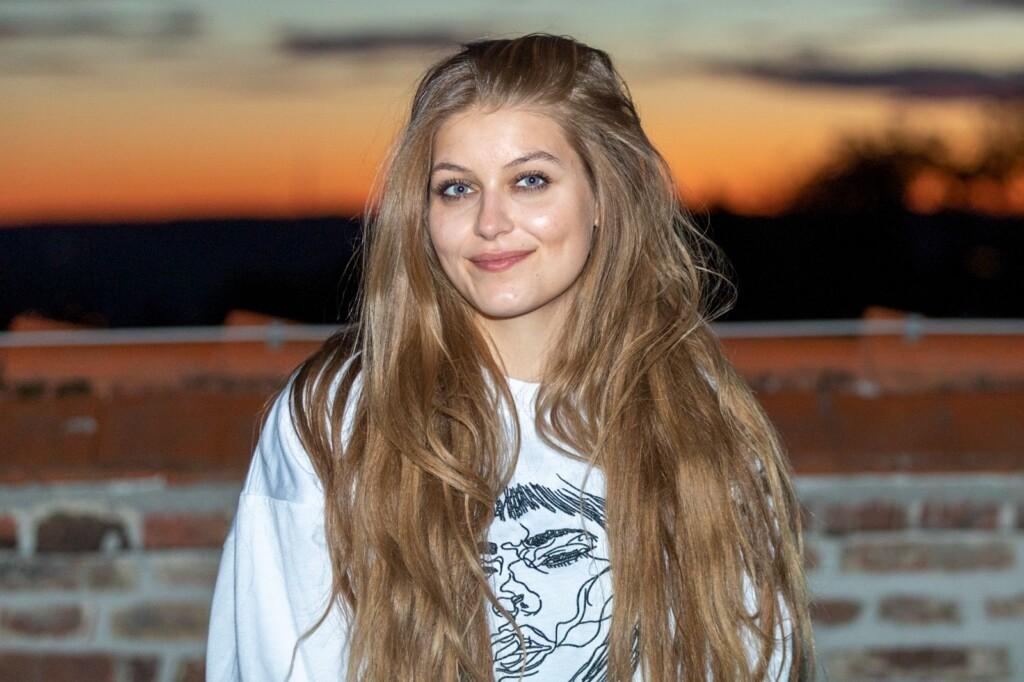
I am Laura Federolf, a German director that also does theater pedagogy, writing and acting on the side. I am about to finish my studies at the academy of performing arts in Ulm in early spring 2025. Being part of the European Theatre and Film Institute network partners allowed me to be part of the TIP hybrid residency in Dublin in November 2023.
The Hybrid residency was an exceptional experience that taught me not only tons of new technical approaches to my work, but also a lot about communication, group dynamics, artistic alignment and about myself as a human.
The two things I was skeptical about turned out to be the most important learning opportunities. First, I was not really convinced of the hybrid residency prior to the live one, but it laid the foundation to be able to approach this performance in new ways, to put aside conventional working methods and discover this new medium with a unique feeling of freedom.
Second, I have never worked in a project where there was no one calling the shots, no hierarchy, no director to make artistic decisions for the actors. While I love ensemble working and exploring a theme or text with a group and integrating everyone in the process, I was overwhelmed by having to navigate this process as a group with “only” a mentor only recommending offers. While our mentor did an amazing job, in the beginning, it felt unnecessary to discuss every tiny decision with the group and nobody had the last word. But after growing together as a group, what our mentor did with such ease and so much fun – this working method was one of the most enriching experiences I ever had.
On the first day in Dublin, we worked together and talked about the theme, power dynamics and universal themes belonging to our overall theme, climate change. Then, without any structure or goal, we did a totally free improvisation. We talked about power dynamics before but then, it was totally free, no structure, and very long, like 30 minutes. We were strangers, didn’t know much about the others’ culture, didn’t speak the same mother tongue and the levels of English were very different so not everyone could communicate well over speech. But that didn’t matter, I had one of if not the most amazing experience in improvisation.
We played and played and without judgment only with joy and enthusiasm. We went trough universal themes and discovered meta levels in small interactions, mostly without talking. At no point, we didn’t know what to to, got bored or just did something to not do nothing, every second was inspiring and exciting and I could have gone on for hours. This nonverbal communication with a group of strangers, the level of intimacy that everyone offered, I would never have thought this was possible with strangers and I will forever hold that experience close to my heart.
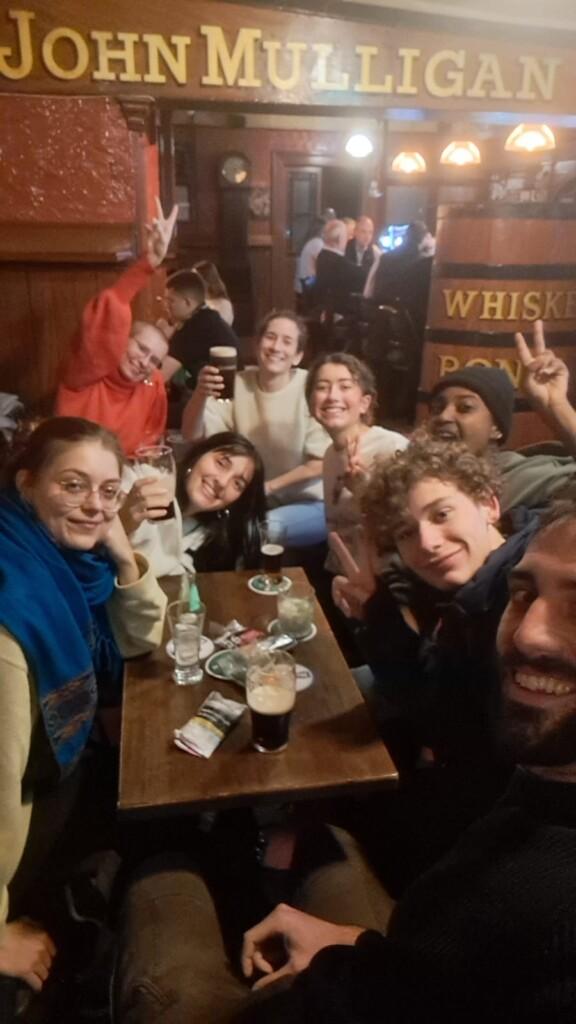
In the first week I was thrown in at the deep end. I had never worked with such a medium and I was not told or taught how to – this was something that frustrated me in the beginning. I felt lost and wanted to do it “right”, contribute to the project, prove myself worthy as we were the only students and working with artists that had years of professional experience. Later, I was able to grasp that exactly this was what gave us all freedom to explore this new medium and break out of our own set rules on how to approach a theme or a creative process. We were guided to experiment freely and this was one of very few times I could really allow myself to do so. Without pressure, with a lot of positive feedback and constructive criticism on how to use aspects we found in another way, leading to new ideas.
After the hybrid week, I was stoked for working together in real life, and again frustrated that there was no leader, nobody instructing us, no real director, no set concept, “rule” or way to “do it right”. Our mentor was only there pedagogically and gave impulses and guided us to explore this freedom over and over again, when a lot of us just wanted instructions. I think I was just overwhelmed by the freedom and held captive by my own brain to “do it right/good”. I was able to overcome that judging voice and experience real artistic freedom later.
What frustrated me originally was the one thing that enriched me the most artistically and I am beyond thankful for that. The new medium nobody really worked with like that before was an amazing playground for that approach. I have been using a screen to communicate my whole life, but use it as a creative space for theatre? Never before. Exploring the different modes of actions was so fun, and while I originally thought our mean were rather limited – our body and voice in front of a screen, well, nothing I haven’t seen before – I could more and more imagine the endless possibilities of composition and usage of space to display emotions, power dynamics, meta levels. We used things we use everyday – our arms and heads or water and leaves from a tree in a new frame and therefore rediscovered them in this new context.
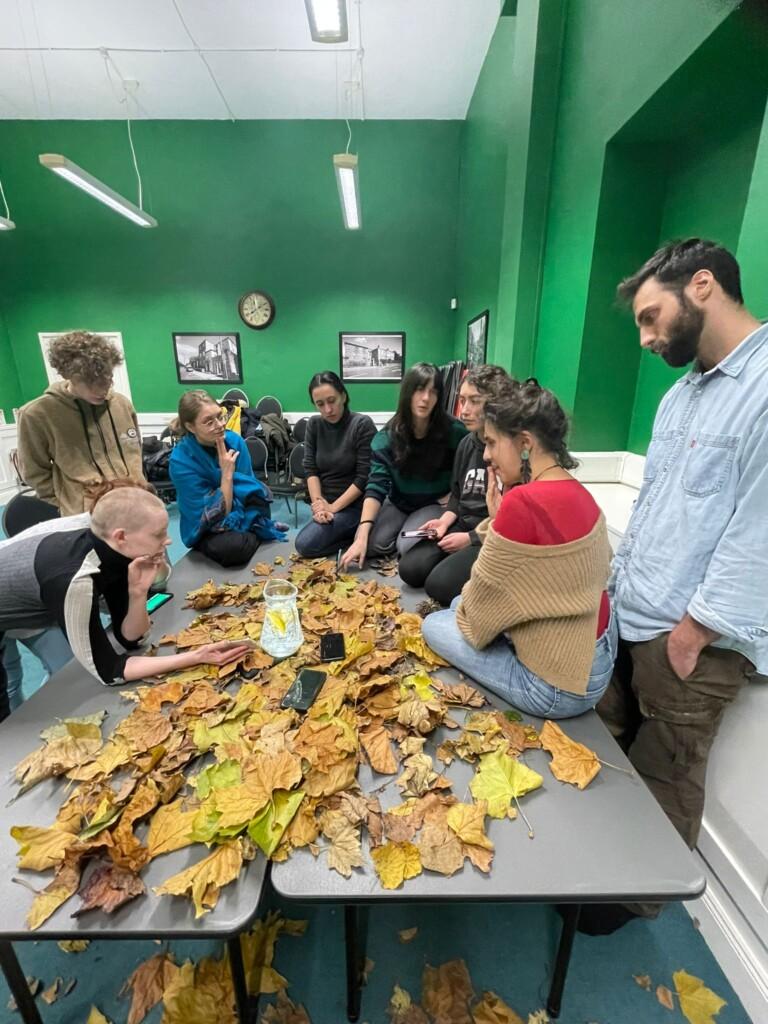
There are 2 things that stand out for me in retrospect.
First, working with this new medium:
I grew up with digital art, screens everywhere and bottomless supply of art on a screen. Still, the different impact and opportunities a screen brings in the context of theatre were new to me. While experimenting, some rules came to me – not that they can’t be broken, but I just got a grip of certain consistencies and (dis)advantages of working with this medium. I will implement this medium in my work and use its expressive power as contrast or to compliment what is happening on stage. I am thrilled to experiment mixing classical theatre with a live screen performance and will do so immediately in my next projects by implementing this medium in my stage plays.
And second, the overall artistic approach:
The used approach how to work together and how to create a performance was something completely new to me. While I usually go from a lot of text work, research, rationally analysing themes and emotions and strategically breaking down the meta level to a personal level, this approach was originating from our individual experience and emotions regarding the theme.
I am used to starting with a theme and gathering every information, analyze, strategize and construct the play and the different figures interacting with each other or the audience so that my meta level is brought across like I want it, so I go from macro to micro. In this work, our starting point was our own individual experience. We as persons, as artists, were what the examination was revolving around. We concerned
ourselves only with our own sensations and experiences as a human being living in the context we wanted to explore and with doing so, a meta ebene was naturally built. It arose organically in the work. We did find meanings and reflect on what deeper meanings we see in our performance, but these things were never strategically set, they were just the natural outcome of all these artists’ work.
Climate change as a theme is something that is surrounding us constantly and has been influencing us since we were born, whether we are aware of it or try no to. Our openness to this experience plus the experience of the live and hybrid encounters, mindful communication and our cultural and personal backgrounds paired with focus, time worked, and dedication was sufficient to let this performance form naturally. And the source this was coming from was far from exhausted, we could have continued and with more time, even more enriching art would have occurred. This is something universal about coming together and creating art that I was able to learn in this project and I will take with me all my work going further. It has inspired me to work more in Europe countries to be able to grasp universal themes from different cultural perspectives and therefore being able to process them in a new way and turn them into art at a more universal level.
For the first time, I have experienced feeling “European”, as weird as that may sound. Never have I felt like being a part of a community of these nations, only maybe a little bit every 5 years when there is the European election. Europe for me as a concept, as a nation, is mainly in my head because of its horrifying migrant policy and my immediate neighboring countries for going on vacations. But now, for the first time ever, I feel as I am part of it, as one inhabitant of it, I identify as a European and I would never have thought that this would make such a difference on how I relate to my nation. Its not only a sense of identity and belonging, but a backup, something to hold on to in facing the ongoing crises and the ones that are on their way. I do not only know, but now feel like we are all sitting in the same boat and have the strong urge to get to know my fellow boat passengers. There is still so much I don’t know about people in my community. I have always been saying, even in my application to various projects, that I am interested in intercultural exchange and do art to bring a universal human experience on stage that sparks the viewer’s sense of humanity as unity, but this taught me that workshops like this are so powerful and important for this cause. For the first time, I don’t rationally think about it, but feel like being a part of Europe. I am thankful for that, it has shaped my whole orientation as an artist.
If I continue to be a part of this project – what I hope I can do – more than any advantage I would have from it, I would benefit from strengthening that feeling. I have only met some people online and only one group of one country personally and while the hybrid communication was way more effective than I thought, I would like to meet as many in person as possible. The first part online was important as a preparation for myself, but the live part was where the magic happened. I expect to find as many new perspectives on technical approaches as well as motivations and intentions in following projects as I found here. I expect to strengthen my European identity that has just been born. I expect to engage in new meaningful, deep artistic connections and exchanges and be enriched by them. I expect to grow as
a person, an artist and a European.
I would love to write and direct a play with European artists about identity. Attachment to identities, narratives, rules, prejudices is what is dividing our nation, is what is ultimately keeping us from acting in concert. While a sense of identity and a moral compass is important, it should not keep us from engaging with people where these differ. We need to act in concert to master the problems of our time, current and future ones. We need to rediscover the sense of community and interdependence and as this is what I always try to initiate with my work, a project leaning on to the principles of this collaboration would support that even better.
In this project I would like to showcase different people clinging to very different identities and what consequences that has. I want to show the benefits to surviving in this world, or better, how the structure of this world pushes or even forces us to do so, but also shows what we miss from conforming to it. Over the play, these identities would get challenged and broken up, and after crises the figures would be even more rounded individuals.
I would love to work with a loose structure as well, bringing people together and giving room to show up as their whole authentic artistic self. By creating a safe, playful, free space for everyone, I would guide them to do structured improvisations and create personas with different basic themes in their lives, wounds every person can relate to and show how they show up when faced with someone that challenges their identity because of their own beliefs. I would try to find ways to tend to these wounds and let the viewer be part of this process of the characters to initiate this process in the viewer as well.
07.01.2024
Federolf, Laura (ETFI)
